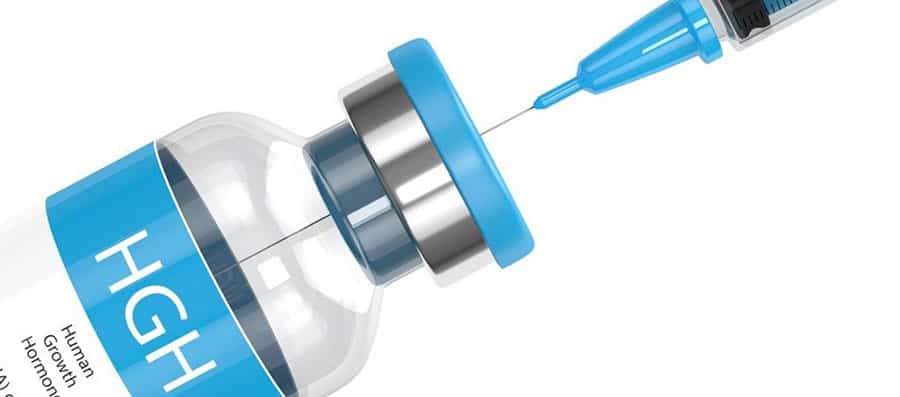
HGH or the Human Growth Hormone is a material produced by the pituitary gland. It can repair and maintain tissues and assist with cell regeneration. With the current applications of HGH, the question of how it alters facial features is inevitable. Today, many people even use it for its purported anti-aging benefits. This article will dive into the science behind HGH.
HGH contributes a lot to the craniofacial development of children. The hormone also makes changes to facial features like the jaw and bone structure. However, there is little research on using the hormone as an adult to change facial features. HGH can improve the bone remodeling rate.
The human growth hormone is naturally occurring in the body. In children, the hormone plays a huge role in determining the growth of facial features such as the jaw.
Most of the medical applications for HGH are for treating growth deficiencies in children. It follows that most of the research dedicated to the hormone is also on the same subject. There are no well-known studies that relate HGH to facial features, especially in adults. However, some people take HGH synthetically to help with aging or to stimulate athletic ability.
Any synthetic application of HGH has risks (more on that later), and it is not something to jump into without a lot of research. The ideal advice would be to use HGH under the guidance of a physician. However, there are still some people who use illegal versions of the hormone.
How Does HGH Work?
The first thing to know about HGH is that it is something that the body needs to grow. This need is why it is important in a child’s growth. Thus, it only means that the most common medical applications of HGH are for children. You will see very little analysis of HGH in adults beyond helping curb the effects of some disorders.
Created by the pituitary gland, human growth hormone helps promote muscle and bone growth in kids, but it also helps regulate body fluids and composition. The hormone actively plays a role in organ growth as well. It can even help with the body’s metabolic processes. The hormone spurs metabolic processes in cells to activate metabolism.
HGH can also help with heart function in certain scenarios. Being that it is a hormone that has many uses, a deficiency in it can be problematic.
A synthetic version of the hormone appeared in the mid-1980s. The medication is also FDA regulated. The only effective method of application for HGH is through injecting it into the body. Anything other than that is not proven to work. While there may be some anecdotal positive results with HGH supplements, they have no scientific backing.
In the beginning, the use of synthetic HGH limited itself to treating short stature in children. Today, that use has evolved. The hormone even has alleged positive effects for anti-aging. But, there are still no conclusive scientific findings that prove this.
Even though this use has spread more than its original purpose, not all uses are legal. Using HGH for bodybuilding, for example, is not a medically warranted use. The hormones used are not FDA regulated, which could potentially be harmful.

Does HGH Affect Facial Features?
HGH will affect facial features, given that it is a growth hormone and contributes a lot to children’s growth. HGH also plays a role in bone remodeling (Litsas, 2015).
In the context of synthetic HGH, there is little science to back it. Most of the research done on HGH and growth focuses on children, all of whom are still growing. But, HGH is still something that adults use to treat growth deficiencies. HGH injections can help in reducing body fat, which is something that will affect facial features. But, it will not provide bone-deep changes.
Another result of HGH injections is building muscle mass, and this is where the usual nonmedical use comes in. Many people use HGH since it allegedly improves athletic performance. While that may be true to some, there is still little research done on these areas. There is no conclusive scientific evidence that HGH can increase testosterone. What we know to be true is that the use of synthetic HGH has a lot of risks.
The anecdotal evidence of HGH and an increase in testosterone probably contributed to the idea that it can alter facial features. Testosterone is one of the hormones that can affect sexually dimorphic facial features. But while it may manifest in some people, it is a great reason to use HGH.
The only way HGH could alter facial features is if you used it in conjunction with mewing. Mewing remodels your facial bone structure over time with proper oral posture. In adults, however, mewing is insanely slow because bone remodeling is slow. HGH, however, increases bone remodeling speed (Olney et al., 2003). Is it enough to get obvious changes, though? Probably not. For more info, check out our article on mewing with HGH.
There are other methods of altering facial features. Don’t count on HGH for that.
If you abuse HGH, you also run the risk of developing acromegaly:

Acromegaly does result in abnormal jaw growth, but it’s not aesthetic whatsoever.
Uses of HGH
The most popular use of HGH is to treat growth deficiencies in children, and sometimes, in adults. But, there are also other uses for the hormone.
1. HGH Deficiency
This one is a no brainer. As a naturally occurring hormone, there is also a chance that a person is born lacking HGH. This deficiency could lead to further negative effects on growth, metabolism, and organ function.
2. Chronic Kidney Disease
This disease usually affects growth in children. Inhibiting them from growing properly at the right speed. HGH can stimulate proper growth in children who have this disease.
3. Muscle Loss due to HIV/AIDS
HGH is one treatment that can help with muscle wasting due to HIV. It does not battle HIV. It merely helps with one of the symptoms. With HGH’s properties in building muscle mass, it is an ideal treatment for muscle loss.
4. Pituitary Tumors
The human growth hormone comes from the pituitary gland. Any problems with the pituitary gland also translate to problems with HGH. An infusion of HGH is necessary to help curb the effects of deficiency.
5. Short Bowel Syndrome
Short bowel syndrome has a lot to do with the inability to absorb the body’s necessary nutrients. It is usually brought upon by intestinal disease or the removal of a part of the intestine.
6.Turner Syndrome
This one is another problem that arises in children. It affects girls and messes with their growth.

Risks of Synthetic HGH
Like many other medications, HGH is not risk-free. There are potential side-effects that a user can get because of HGH. Be cautious of HGH since the products that do not come in injections are not proven to work. Thus, you are putting yourself not only at the risk of synthetic HGH but the improper use of it as well. Even properly regulated HGH can have negative side-effects on the human body, including, but not limited to, the following.
- numb and tingling skin
- nerve, muscle, or joint pain
- higher risk of heart disease
- higher risk of diabetes
- possible growth of cancerous tumors
- low blood sugar
- swelling because of fluids in the tissues
- carpal tunnel syndrome
- liver damage
- fatigue
- mood swings
Some supplements that contain or advertise that they have HGH can also lead to:
- nausea
- heartburn
- allergic reactions
- bloating
- diarrhea
- stomach pain
There is an extensive list of what you have to look out for when taking HGH. With all of the risks that come with HGH, the best choice would be to talk to a physician first. That way, you at least know that you are using a regulated form of the hormone.

